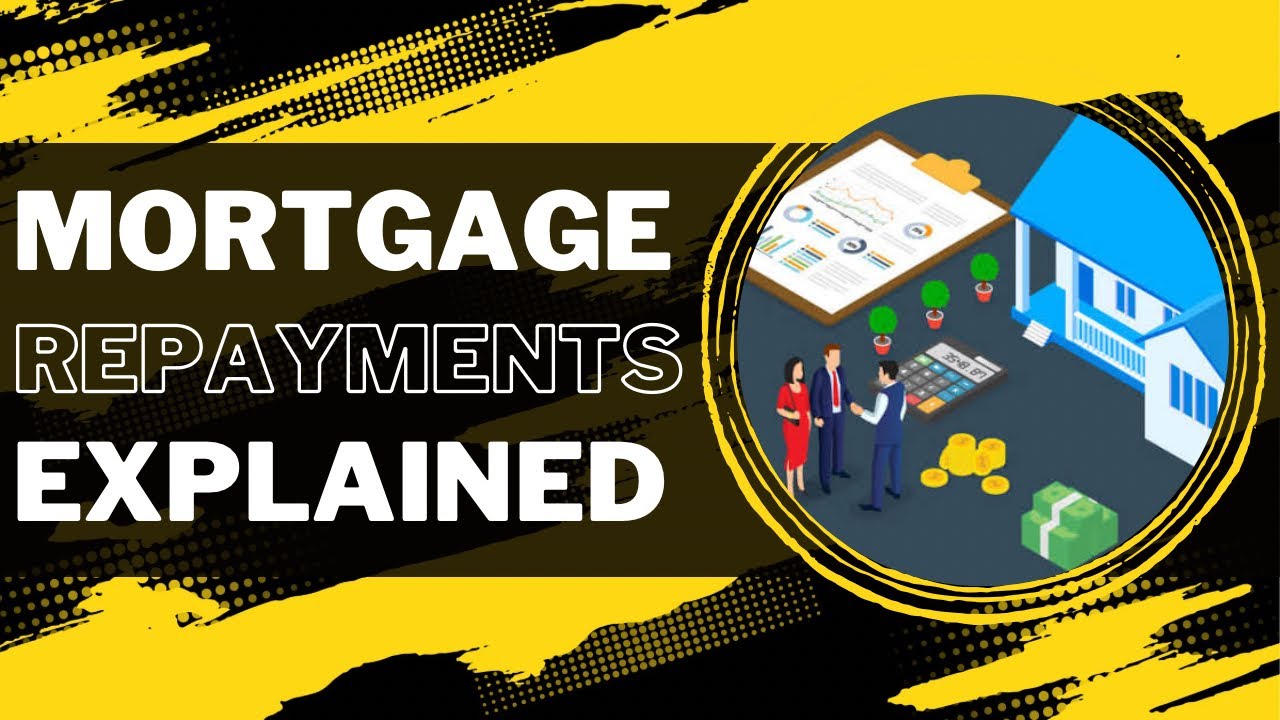Mortgage Repayment is the process of paying back a Mortgage Lender the money that the homeowners have borrowed. Typically, Mortgage Repayment consists of periodic Mortgage Payments toward the Mortgage Principal, the original amount borrowed, the Mortgage Rate or Interest, and fees for the privilege of being lent the money. Most Mortgage Lenders allow homebuyers the repay the full amount at any time, though there might be early Mortgage Repayment Fees.
Mortgage Repayment is the process of settling a debt, typically through set payments over time toward the Mortgage Principal and Rate of Interest. A Mortgage is a Loan that a homebuyer takes out to pay for their Home. The homeowners must also repay this Loan, at the end of the Mortgage Term to the Mortgage Lender. In most cases, the homebuyers pay a monthly amount which is called the monthly mortgage payment. This amount consists of paying Repayment and interest.
A mortgage is a Loan to buy a home and when a homebuyer purchases a home they borrow money from the bank to help finance the Home. Such a loan is officially called a Mortgage Loan. The amount homebuyers borrow from the mortgage lenders for their Mortgage must also be repaid. This is called Mortgage Repayment. In most cases, Mortgage Repayment is done monthly, through monthly mortgage Payments. within the agreed number of years, the homeowners repay the mortgage in full. With most Mortgage loans it is possible to make additional mortgage repayments.
What is Mortgage Repayment?
Mortgage Repayment refers to Paying back money that the homebuyers borrowed to purchase their dream Home. Mortgage Repayments cover a part of the Mortgage Principal, the Amount Borrowed, and Mortgage Interest, which is what the Mortgage Lenders charge for supplying the funds. The loan agreement specifies the Mortgage Repayment terms, including the rate of interest to be paid. When taking out a mortgage loan homebuyers should pay close attention to the Mortgage Repayment policies and agree to take on debt if they are confident they can make on-time Mortgage Repayments.
How Does Mortgage Repayment Work?
When homebuyers take out mortgage loans, their lenders expect they will likely repay the debt. The interest is charged based on an agreed-upon rate and payment schedule from when a loan is disbursed to when it is settled. When making a Mortgage Loan, the financial institutions or Banks forgo other investment opportunities that could offer returns. The interest charges pay them for this opportunity cost and risks associated with lending. Usually, Mortgage interest rates are presented as the Annual Percentage Rate (APR). The Mortgage Repayment schedule depends upon the loan types and the lender involved. Whether applying for or paying off a Mortgage Loan, It is crucial to study the section of the Mortgage Loan agreement outlining their options should they be unable to make scheduled payments. Homebuyers who can’t cover their loans may turn to bankruptcy protection.

What Are the Benefits of Mortgage Repayment?
Mortgage Repayment provides a return on investment that is much more reliable than anything. It also saves the homebuyers tens, and sometimes hundreds, of thousands of dollars. Most people buy a home so they have a place in which to live. Even if it doubles or triples in value, they aren’t going to sell it, and if they do, it will take every cent they earn to buy a comparable home in the same neighborhood. The next argument against Mortgage Repayment is even more dubious, however, the homebuyers hear it all the time, even from sophisticated investors: Mortgage interest will provide them with a tax break.
How To Pay Off Mortgage Quickly?
Homebuyers with an adjustable-rate Mortgage may be able to refinance their Mortgage Loans as a fixed-rate mortgage with lower interest rates. If a problem with payments is temporary the homebuyers can work towards reinstatement, paying the lender the past-due amount, along with late fees and penalties, by an agreed-upon date.
Once the homeowners have a mortgage loan, the key is paying it off is simple, which is sending money. Some Mortgage plans offer a bimonthly payment schedule, which results in one extra payment per year. It is a great strategy unless there is a fee associated with it. If there is, simply set aside some cash and make an extra payment on Borrower’s own.
The Mortgage loan modifications provide another potential means of relief. These are adjustments to the mortgage to make payments more manageable, including lowering the interest rate, extending the loan term, or rolling missed payments into the existing loan balance. In most cases, a part of the mortgage loan may be forgiven, which reduces the overall debt.
Frequently Asked Questions (FAQs)
Question 1: What is a Grace Period When Repaying a Mortgage Loan?
Answer: A grace period is a set time after the due date when a payment can be received without penalty. If the mortgage loan has a grace period, making a payment within this window can help homebuyers avoid late fees, although interest may still accrue.
Question 2: What happens if I don’t repay a Mortgage Loan?
Answer: Failing to repay the Mortgage Loan can have serious consequences for your finances and credit. Initially, you may be hit with late fees and an increase in your Mortgage’s interest rate. If nonpayment continues, then the Mortgage lender might send your account to a collections agency, further damaging your credit score. Legal action may result, potentially leading to wage garnishment or asset seizure depending on the type of debt.
Question 3: What can I do If I have trouble Repaying the Mortgage?
Answer: If You can not afford the Mortgage Repayment, then you can start by reaching out to your mortgage lender to explain why you’re having difficulties. Most of the mortgage lenders offer forbearance or deferment choices for borrowers going through temporary financial hardship.
The Bottom Lines
Mortgage Repayments means the amounts paid or required to be paid from time to time for principal and interest by or on behalf of a mortgage vendor on a Mortgage Loan for a Project under the applicable Mortgage. Repaying a mortgage loan should be thorough in the long term and adapted to the homeowner’s living circumstances. This is because the process is not that simple.
